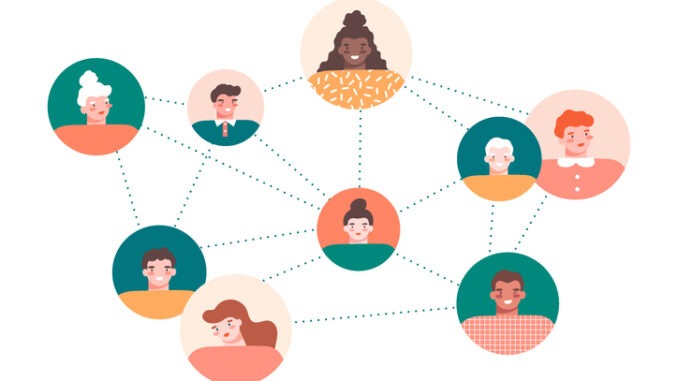
A community of friends and contacts helps young people to progress and succeed – but not all pupils have access to such a group. Lorraine Langham, CEO of the charity Future First, explains the importance of networks and describes how schools can make them accessible for all
Most honest, successful people will agree that, at some point in their lives, they have relied on their network to progress – whether it was to gain new contacts, access opportunities or advance their careers. The old adage, ‘It’s not what you know, but who you know’ often rings true – and if you ever doubt it, just look at what schools, colleges and universities people in top jobs attended.
In today’s working world, people with the best networks, unquestionably, have a stronger chance of success; in fact, it is often reported that around 60-70% of jobs aren’t advertised publicly – meaning that, without the privilege of a strong network, you won’t even hear about most vacancies, let alone be considered for them. The reality is that possessing an influential network can tip the scales in your favour – and it’s not just adults that need strong connections in life.
Having access to a pool of useful contacts is also vital for young people but, sadly, this is only available to some. Children from disadvantaged backgrounds are a lot less likely to build a network of friends and family connections than their more privileged peers. In fact, less than 50% of the most persistently disadvantaged young people (those on pupil premium for the whole of their school lives) know anyone in a job they want to do.
Affluent parents naturally have stronger networks and can, therefore, provide more opportunities for their children than parents from households with low socioeconomic status. This means that, from an early age, disadvantaged children miss out on the work experience, summer job vacancies, guidance, or someone putting in a good word for them and, worryingly, a Teacher Tapp survey found that only four per cent of teachers strongly agree that they feel equipped to advise young people on the diversity of careers available.
Of course, networks aren’t the single ingredient in a recipe for success; hard work and accomplishment are also vital but, whilst the notion of meritocracy may take you so far, you don’t win the race if you start further back, regardless of the pace of your progress.
Research from the charity Impetus showed that children who qualify for free school meals are twice as likely to be out of work in later life than their ‘better-off’ peers- even if they gain good qualifications at school.
Developing a school network for every child
Where a child may lack access to a personal network, a school has the power to give them one, via its alumni. Every school has a ready-made network of past pupils representing many pathways, sectors and jobs – including further and higher education, internships and apprenticeships – many of whom will be keen and willing to help today’s students with guidance and advice, or even as a mentor.
Building a network through the school will allow disadvantaged children to tap into a resource that is fair and equal, and not limited to those with wealth and privilege. Furthermore, a network of former pupils is relatable – ‘someone just like me can succeed’;- it builds confidence, motivation and engagement with school work.
With the vast range of technological tools and social platforms now available, and with effort, all schools can develop their networks by reaching out to former pupils for support. Using the contact details of past pupils you can reach out, or use the local press, social media, or put up posters in local areas. Neighbouring colleges and universities can also help the network grow, as will asking parents and siblings to get involved – and the beauty of developing a school network is that it’s sustainable and will grow, with new students signing up every year as they leave.
Since its inception 12 years ago, Future First has helped more than 1,500 schools develop thriving networks, doing the legwork for schools, delivering meaningful encounters, brokering mentoring and arranging workshops, events and speakers. Thanks to generous funders, we now have a bespoke networking platform to support state school students on their journeys too.
The benefits of a network
As a school establishes its network, the benefits are vast. Pupils can discover new opportunities and gain access to jobs, develop their skills, experiences, and confidence. They can access wisdom and guidance, find a coach or mentor and gain new ideas. They can approach connections for support, build meaningful social capital, forge alliances and collaborations.
As for schools, such a new network will offer access to a community with a vast array of skills and knowledge, a group that can help you find potential governors, volunteers, help you raise awareness, fundraise and assist with community events.
We want all schools to ensure that the power of a network is not exclusive, and that the advantages of connections are available to every young person, regardless of their start in life.
We have lots of know-how and free resources to support state schools to build a community which can help open up those doors that would have otherwise remained shut.


Be the first to comment